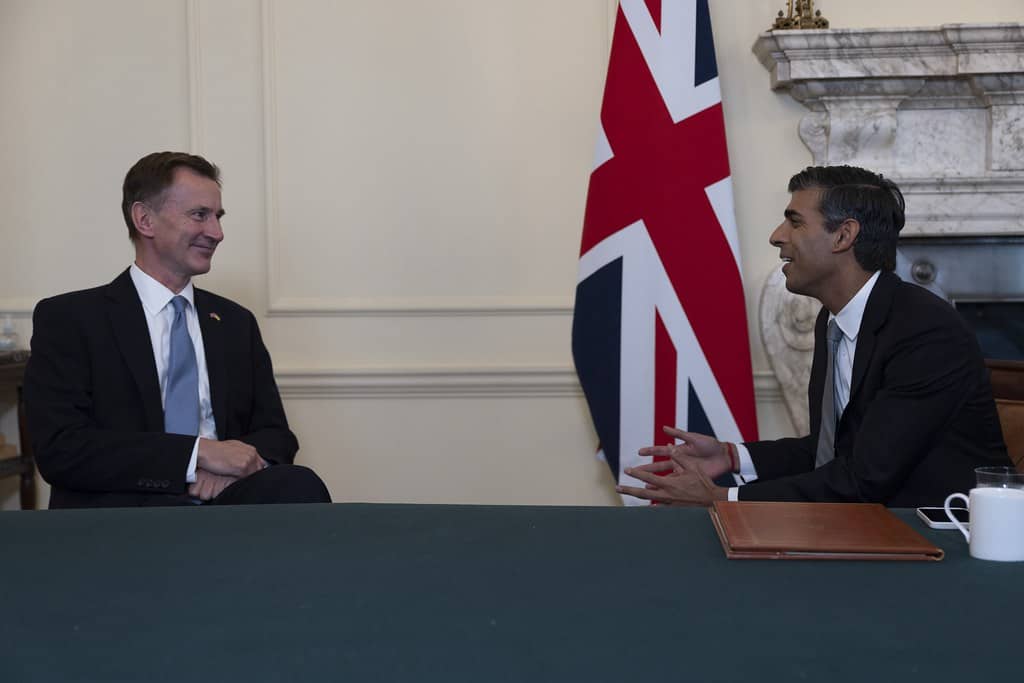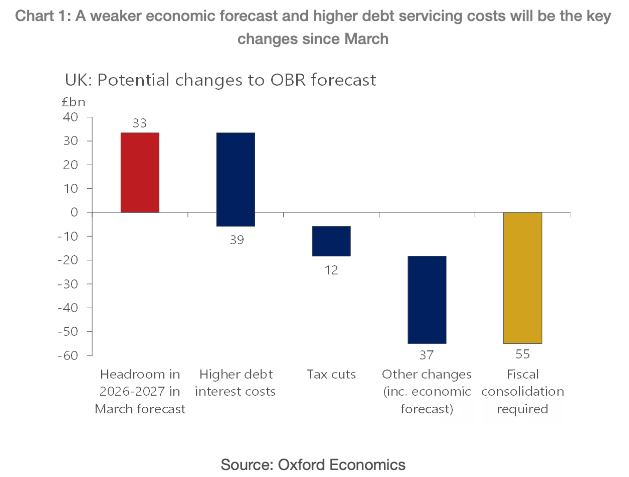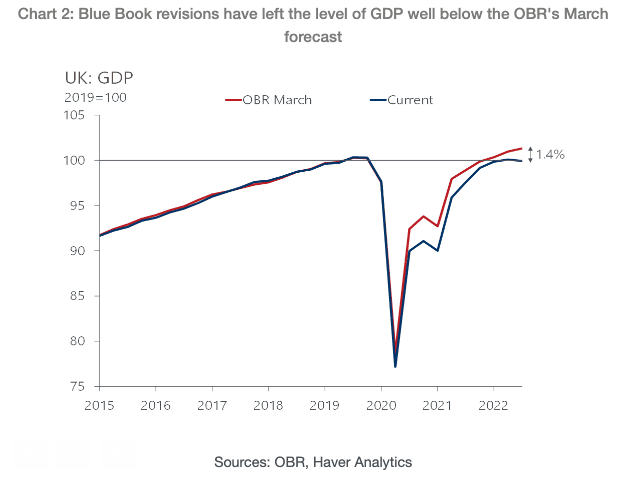Hunt is About to Deepen the UK's Recession: Oxford Economics
- Written by: Gary Howes

Above: Chancellor Hnut and Prime Minister Sunak. Image: Gov.uk
UK Chancellor Jeremy Hunt will deepen the impending UK recession with the tax hikes and spending cuts he is due to announce next week, according to new research.
Oxford Economics, the research provider and consultancy, says next week's Autumn Statement could signal a dramatic swing in UK fiscal policy from too loose to too tight.
"In our view, shifting to overly tight policy would deepen the recession that the UK is likely to endure in 2023," says Andrew Goodwin, Chief UK Economist at Oxford Economics.
The call comes on the day the ONS reported the UK economy shrunk 0.6% in September.
The data confirm a potentially protracted slowdown is now underway; the Bank of England warned in October this decline could last for up to eight quarters.
Most economists we follow are also forecasting a UK recession in 2023.
Up for debate, however, is the scale and depth of that recession.
Much will depend on the decisions taken by Rishi Sunak's government, which has stabilised bond markets by recommitting to a responsible fiscal policy following the surge in volatility that followed the 'mini budget' of his predecessor, Liz Truss.
A commitment to balancing the UK's books by bringing debt down by the third year of the forecast horizon is something markets have welcomed, mortgage rates have come down and the Pound has recovered.
But it also comes at a cost: tight fiscal policy is a headwind to growth and over the longer term this could imply ongoing underperformance in the Pound and sticky mortgage rates.
After all, it is growth that increases revenues and the Treasury's tax take. Hunt's proposal to find £55BN, by cutting spending and raising taxes presents a cost to business activity and consumer spending.
The Chancellor will also reveal the independent Office for Budget Responsibility's latest economic forecasts, which will help decide the scale of tax hikes and spending cuts required.
"But there's so much uncertainty surrounding so many aspects of the OBR's forecast that we think it would be a mistake if the government tailored its policy closely to these estimates," says Goodwin.
Oxford Economics says it has been difficult for authorities to gauge the economy's performance owing to the pandemic, meaning sizeable revisions are likely at later dates.
"The lesson from this year's Blue Book revisions is that the historical data can be revised heavily, particularly during a pandemic. As it stands now, with GDP below its pre-pandemic level but the labour market unprecedentedly tight, the data is hard to reconcile," says Goodwin.
Oxford Economics expects the Bank of England will raise interest rates to a peak of 4.0%, implying a lower debt interest bill over the coming years.
"Our forecasts imply only around half of the mooted £55BN consolidation would be needed to put the debt to GDP ratio on a downward trajectory in 2027-2028," says Goodwin.
Media reports suggest Hunt will be looking to find savings to the tune of £55BN to meet the country's fiscal rule that demands debt falls by the third year of the fiscal forecast.
"A consolidation of £55BN, or 1.8% of 2027-2028 GDP, is large in the context of an economy with low trend growth of less than 1.5% a year," says Goodwin.
"The current global environment may make executing a successful fiscal adjustment even harder," he adds.
But what choices does the government have? It will be keen to avoid the market backlash that followed Truss' ill-fated budget, which sent bond yields surging higher, raising the cost of finance throughout the economy and triggering a fall in the Pound.
Oxford Economics thinks markets would give the government the benefit of the doubt, however.
"The new administration has demonstrated that it understands the concerns of markets in a way that the Truss regime did not. And given the multifold impact of the Russia-Ukraine war, some increase in government debt in the near-term is appropriate," says Goodwin.





